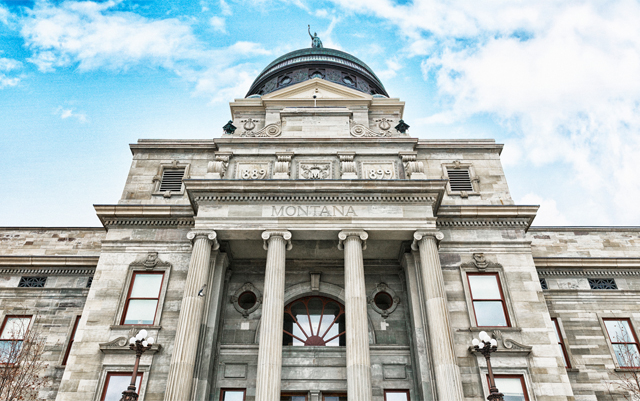
By Andrew Wimer
Last week, the Montana Supreme Court struck down the tax credit scholarship program created by that state’s legislature in 2015. The decision ignored recent U.S. Supreme Court precedent and was out of line with every other state court decision involving tax credit scholarship programs. The Montana program provides a modest tax credit (up to $150 annually) to individuals and businesses that donate to private scholarship organizations.
There are 18 such programs nationwide, or there were until last week. The Montana Supreme Court struck down the program because it allowed children to attend both religious and non-religious schools. The decision was grounded in Montana’s Blaine Amendment.
Many in the educational choice community are aware of Blaine Amendments, but if you’re not, here’s a quick primer. In the 19th Century, anti-Catholic animus led to a movement to pass a U.S. Constitutional Amendment that would ban public funds for “sectarian” — code for Catholic — schools. The federal effort failed, but numerous states passed similar amendments modeled after Maine Sen. James G. Blaine’s proposal.
The U.S. Supreme Court has been edging toward declaring Blaine Amendments unconstitutional, coming close in 2017’s Trinity Lutheran decision. This decision declared that Missouri could not use its Blaine Amendment to deny funds to a Lutheran pre-school that had applied for playground resurfacing money. Chief Justice John Roberts used strong language in his majority decision, saying that, “the exclusion of Trinity Lutheran from a public benefit for which it is otherwise qualified, solely because it is a church, is odious to our Constitution … and cannot stand.”
Every other state high court to consider the constitutionality of a tax credit scholarship program, dating back to 1999, has ruled in favor of educational choice. While the Montana ruling doesn’t threaten programs in other states, it takes away scholarship money from many needy and deserving children in Big Sky Country. Eliminating the program harms children who were attending eligible private schools.
The Montana decision is bad news for families relying on the scholarship program. But good news could be on the way.
This decision invites U.S. Supreme Court scrutiny because the Montana Supreme Court explicitly refused to consider whether that state’s Blaine Amendment squares with the U.S. Constitution, which demands that government remain neutral on matters of religion (and which has previously upheld publicly funded educational choice programs that include religious options). The Institute for Justice, which represents Montana parents in the case, will appeal the ruling and we expect strong support for our petition. Indeed, the Court appeared poised to consider a nearly identical issue, immediately after it decided Trinity Lutheran, when it vacated a Colorado Supreme Court decision striking down a publicly funded scholarship program. However, that program was legislatively repealed, and that case mooted.
There is also a possibility for a stay of the decision, which could allow families to continue accessing scholarships while the U.S. Supreme Court considers hearing the case. Otherwise, many children could be forced to switch schools starting next year. Stay tuned.
Andrew Wimer is the Assistant Communications Director for the Institute for Justice.


